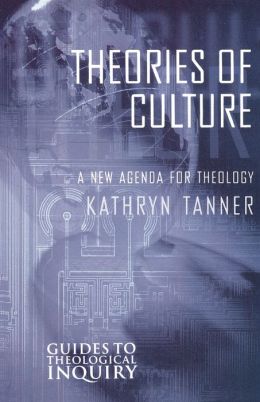 在《文化诸理论:一个神学的新议程》里,凯瑟琳坦纳(Kathryn
Tanner)在上半部分谈及了文化理论在历史中的发展,并对现今的文化理论进行批判与重建,而在书本的下半部分中进入神学与文化的对话。作者在其论述中,透过后现代文化理论来建立一个能够让基督教走向跨文化的神学基础。作者用了相当大的篇幅来挑战后自由神学作为基督教社会实践的基础。作者在书中的主要目的,是要挑战一个以文化作为主导的神学:如预先设定的文化传承,或被局限在文化界限的神学。相反的,作者寻求一个能够允许神学与文化交涉的开放性,一个允许神的恩典在其中自由流动的神学。作者的神学新议程,就是要透过对话来鼓励基督教群体创意并多样性地走入这个世界。
在《文化诸理论:一个神学的新议程》里,凯瑟琳坦纳(Kathryn
Tanner)在上半部分谈及了文化理论在历史中的发展,并对现今的文化理论进行批判与重建,而在书本的下半部分中进入神学与文化的对话。作者在其论述中,透过后现代文化理论来建立一个能够让基督教走向跨文化的神学基础。作者用了相当大的篇幅来挑战后自由神学作为基督教社会实践的基础。作者在书中的主要目的,是要挑战一个以文化作为主导的神学:如预先设定的文化传承,或被局限在文化界限的神学。相反的,作者寻求一个能够允许神学与文化交涉的开放性,一个允许神的恩典在其中自由流动的神学。作者的神学新议程,就是要透过对话来鼓励基督教群体创意并多样性地走入这个世界。
作者同意后自由神学的主张,认为“基督徒身份”是建立在文化的界线上。但是,这界线不是清楚的,而是容许基督徒身份的不纯性与混杂性:一个经常与所处社会及其他宗教共享文化形式而建构的混合身份。作者如此写道: “Contrary to moderate postliberalism, the distinctiveness of
a Christian way of life is not so much formed by the boundary as at it;
Christian distinctiveness is something that emerges in the very cultural
processes occurring at the boundary, processes that construct a distinctive
identity for Christian social practices through the distinctive use of cultural
materials shared with others.” (Page 115)
作者透过其论述而认为:
- 基督教群体并不是自我封闭的(self-contained),也不是自给自足的(self-sufficient),而是持续性地参与在社会中。
- 虽然基督徒与非基督徒的生活方式存在着界线,但这界限是流动性(fluid)且穿透性的(permeable)。
- 结合基督教群体的,并不是其内在的行为与惯例,而是其关怀:对真门徒的建立、和对人的文字的及信仰行为的正确反思。
因此,作者从后现代文化理论的角度来谈及基督教群体之身份时,认为基督教群体行为的多样性在其所关怀的任务下被结合。然而对于基督教群体身份的建构,其身份建构又作为基督教群体的一项任务,是无法被解答的。 “How the identity of Christianity should be summed up is an
unanswerable question in that Christianity has its identity as a task; it has
its identity in the form of a task of looking for one.” (Page 155)
虽然如此,作者认为,作为一个多样性的群体,基督教群体应该是一个真诚对话的群体,一个相互聆听与批判,并共同致力于互相指正,共同期望建立好的门徒、美好的信心、与纯正的见证。
作者在书的结尾如此总结说
: “A reachable goal of great value is simply the strengthening of the bonds of
Christian fellowship. Through the ongoing practice of choosing dialogue over
monologue, there emerges a strengthening of the commitment to search for the
meaning of Christian discipleship together, with both seriousness about the
stakes and an eagerness to make something good come of conflict.” (Page 175)

No comments:
Post a Comment